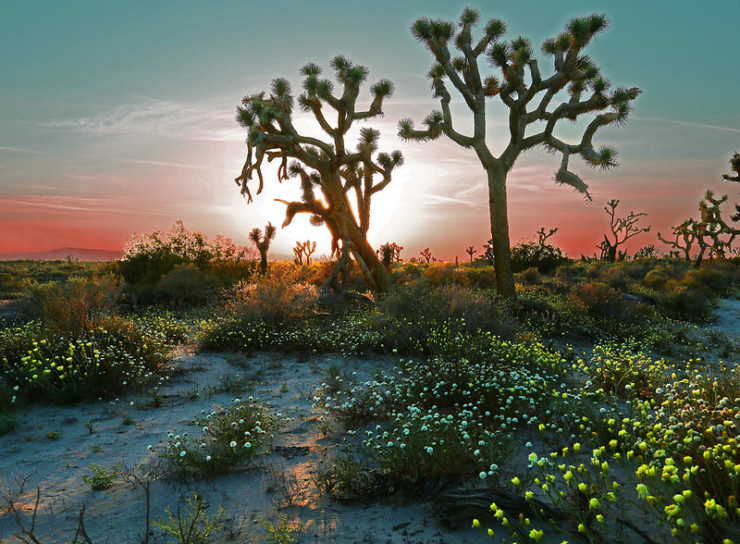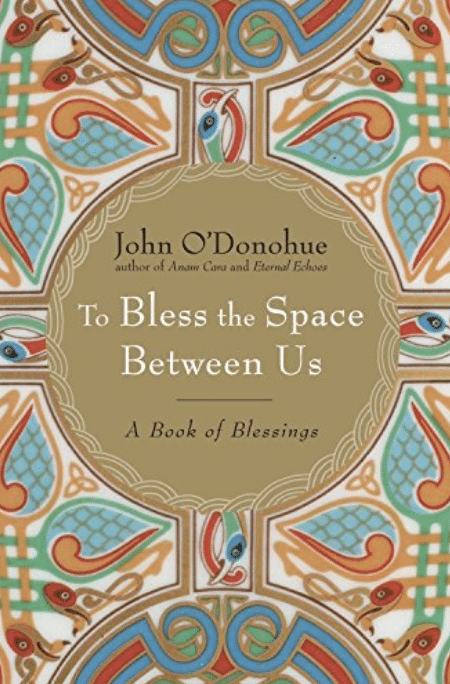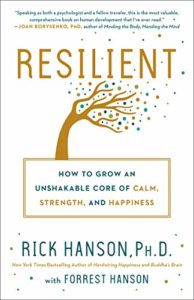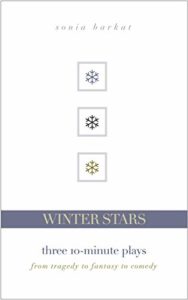“Change arrives in nature when the time has ripened,” writes John O’Donohue. He’s talking about change, about arrival, about thresholds. And he describes this process of change in nature as a profoundly nuanced one, such that we don’t even recognize it happening until it does, at which time it is irreversible and “we can look nowhere without seeing it.” It’s not on the calendar, but it happens at just the right time.
A threshold, that place between what was and what will be, is “not a simple boundary,” he writes; “it is a frontier that divides two different territories, rhythms, and atmospheres.” And while some thresholds open suddenly and without warning, such as we experienced with the pandemic, O’Donohue reflects that stepping over this unseen boundary is known to us for some time, but like the spring, also unseen, working below the surface until it’s time to emerge, “We never suspect a thing. Then when the grip of some long-enduring winter mentality begins to loosen, we find ourselves vulnerable to a flourish of possibility and we are suddenly negotiating the challenge of a threshold.” A few years ago when I introduced myself as Will for the first time, the individual I’d just met reminded me that I’d crossed a threshold, and soon after I became keenly aware of so many changes set in motion by that small, irreversible act, experiencing that wondrous vulnerability to a flourish of possibility.
When considering the challenges we face in crossing those thresholds, he asks, “What gift would enable me to do it?” One such gift we can offer each other is to extend a blessing, affirming that act of stepping over the other has just done.
In “For the Traveler,” O’Donohue observes that when we cross the thresholds of new places, even the place itself is impacted:
Every time you leave home,
Another road takes you
Into a world you were never in.
New strangers on other paths await.
New places that have never seen you
Will startle a little at your entry.
Old places that know you well
Will pretend nothing
Changed since your last visit.
He writes blessings for those who are on the cusp of parenthood, adulthood, and then on to those who are facing end of life, a blessing that any of us, at any stage of life, would do well to keep top of mind:
That you would gather yourself
And decide carefully
How you now can live
The life you would love
To look back on
From your deathbed.
The chapter on Thresholds closes not with a blessing for a time of life or particular threshold we face, but “In Praise of Water,” finding in it a threshold in its very existence:
The courage of a river to continue belief
In the slow fall of ground,
Always falling farther
Toward the unseen ocean.
The river does what words would love,
Keeping its appearance
By insisting on disappearance;
It’s only life surrendered
To the event of pilgrimage,
Carrying the origin to the end,
[…]
Let us bless the humility of water,
Always willing to take the shape
Of whatever otherness holds it,
[…]
Water: vehicle and idiom
Of all the inner voyaging
That keeps us alive.
Blessed by water,
Our first mother.
***
Following Thresholds, he writes of Homecomings, that return to the place before we crossed the threshold in the first place. A home, he writes, is a “subtle, implicit laboratory of spirit. It is here that human beings are made; here that their minds open to discover others and come to know who they might be themselves.” He reflects that though, at the time, the changes and happenings are largely unseen, and that most of what we experience at home we experience within the “ordinary narrative of the daily routine,” our most defining moments have a primary locus: “When one looks back more closely, it is quite incredible how so many of the roots of one’s identity, experience, and presence lead back to that childhood kitchen where so much was happening unknown to itself.
O’Donohue observes that part of what makes being invited into the home of another so momentous is its revelatory nature. “You have stepped from the anonymity of the streets into the sudden, gathered intimacy of a private sanctuary. There is some unwarranted way in which the home displays the presences that it holds and molds.”
In these days, when many of us who have been sent home to work remotely due to the pandemic, we are ironically entering more homes than ever before by virtue of the teleconference. Zoom and other digital meeting platforms give us a unique, if narrow, view into the homes of our colleagues and clients in a strange leveling of a hierarchy that existed in the Beforetimes.
In “On Meeting a Stranger,” he expresses an idea that is helpful for such a context:
With respect
And reverence
That the unknown
Between us
Might flower
Into discovery
And lead us
Beyond
The familiar field
Blind with the weed
Of weariness
And the old walls
Of habit.
He reaches beyond the physical place of home into something more esoteric in “To Come Home to Yourself,” an invitation to welcome oneself into one’s own soul:
May all that is unforgiven in you
Be released.
May your fears yield
Their deepest tranquilities.
May all that is unlived in you
Blossom into a future
Graced with love.
***
Finally, in a chapter on “States of Heart,” O’Donohue considers the way that the heart always remembers itself. “Though so much else is in motion in the mind and the senses,” he writes, “the hidden heart never loses sight of us.” He suggests that the mind—busy as it can become with everything it has to think about—has a hard time remembering who we are but that “everything of significance is inscribed” in the heart, much like our very own “book of life.” It is because the heart takes everything in without having to be told to do so, and without our paying it any mind that “it is wise now and again to tune into your heart and listen for what it carries.”
In a blessing “For Courage,” he writes:
When the light around you lessens
And your thoughts darken until
Your body feels fear turn
Cold as a stone inside,
[…]
Close your eyes.
Gather all the kindling
About your heart
To create one spark.
That is all you need
To nourish the flame
That will cleanse the dark
Of its weight of festered fear.
A new confidence will come alive
To urge you toward higher ground
Where your imagination
Will learn to engage difficulty
As its most rewarding threshold!
Knowing it will come, he writes a blessing “For Failure”:
But the light that comes after rain
Is always fierce and clear,
And illuminates the face of everything
Through the transparency of rain.
He recalls the way that grief can come back to us unexpectedly even when we think we’ve moved past:
Days when you have your heart back,
You are able to function well
Until in the middle of work or encounter,
Suddenly with no warning,
You are ambushed by grief.
It becomes hard to trust yourself.
All you can depend on now is that
Sorrow will remain faithful to itself.
More than you, it knows its way
And will find the right time
To pull and pull the rope of grief
Until that coiled hill of tears
Has reduced to its last drop.
Knowing that the heart becomes weary in the in between of things, he writes “For the Interim Time”:
You are in the time of the interim
Where everything seems withheld.
The path you took to get here has washed out;
The way forward is still concealed from you.
You cannot lay claim to anything;
In this place of dusk,
Your eyes are blurred;
And there is no mirror.
[…]
What is being transfigured here is your mind,
And it is difficult and slow to become new.
The more faithfully you can endure here,
The more refined your heart will become
For your arrival in the new dawn.
Surely we are in this interim time today, with blurred eyes and no mirror, and wondering when we might know what we are even to lay claim to, let alone attempt it. But the promise is there, in time, that there will be a new dawn. May we access it from a freshly paved path.
_______
 For Discussion
For Discussion
This month, we’re reading John O’Donohue’s To Bless the Space Between Us together. Let’s think together on some of the ideas expressed in these chapters.
1. Consider the most significant thresholds you have crossed. Where they initially unseen, as you unknowingly prepared for them, or did they open suddenly, seemingly from nowhere?
2. In what ways have you experienced blessing by welcoming someone into your home or by being welcomed into the home or another?
3. He writes of rain washing out roads but also providing the transparency needed for understanding. Which way have you more experienced the metaphor of rain or water?
Join us as we continue reading on the schedule below:
Book Club Announcement
June 10: Introduction, Beginnings (Ch. 1) & Desires (Ch. 2)
June 17: Thresholds (Ch. 3), Homecomings (Ch. 4) & States of Heart (Ch. 5)
June 24: Callings (Ch. 6), Beyond Endings (Ch. 7) & To Retrieve the Lost Art of Blessing
Soon, we’ll kick off our summer quarter book club. Beginning in July, we’ll find our own delight sharing The Book of Delights together, a collection of “essayettes” by poet Ross Gay. The book is the result of his year-long daily practice of finding small delights, “a spirited collection of short lyric essays, written daily over a tumultuous year, reminding us of the purpose and pleasure of praising, extolling, and celebrating ordinary wonders.” The New York Times Book Review said that “The delights he extols here (music, laughter, generosity, poetry, lots of nature) are bulwarks against casual cruelties. As such they feel purposeful and imperative as well as contagious in their joy.” In August, we’ll read Resilient: How to Grow an Unshakeable Core of Calm, Strength, and Happiness by Rick Hanson. Resilience is a quality that is important not just in crisis, but in everyday living. Combining neuroscience, mindfulness and psychology, Hanson works toward development of “twelve vital inner strengths hardwired into your own nervous system” to learn how to cope and thrive. Finally, in September, we’ll go to the theatre with Sonia Barkat for Winter Stars: Three 10-Minute Plays: From Tragedy to Fantasy to Comedy. These compact little plays carry deep truths we’ll explore together.
Photo by Rennett Stowe; Creative Commons license via Flickr. Post by Will Willingham.
- Earth Song Poem Featured on The Slowdown!—Birds in Home Depot - February 7, 2023
- The Rapping in the Attic—Happy Holidays Fun Video! - December 21, 2022
- Video: Earth Song: A Nature Poems Experience—Enchanting! - December 6, 2022





Megan Willome says
Will, thanks for the inspiration. And to John O’Donohue. And to Charles Dickens.
Low Tide
I did not know I crossed a threshold that March Monday
when the phone rang
From then forward my calendar was emptier
my days, more full
Each day we praise water—each drop of rain,
my bike rides to the Sacred Lake, even the ocean
which though we cannot visit it, we return to our memories
of it, ever fluent in its waves
the tide is still in
we wait to be willing
to go out when the water is low
laura says
Thank you for this, Megan. Something about this poem gave me such an inner calm. Like standing in a tidal pool and looking out over the ocean.
laura says
This, from the chapter on Homecomings, really got me: “Home … stands for the sure center where individual life is shaped and from where it journeys forth. What it ultimately intends is that each of its individuals would develop the capacity to be at home in themselves.” This is what I want. This is what I long for for every individual, regardless of the color of skin or who you love. But even more. That others would respect, and even embrace, that we all are moving to that place of home within ourselves. So many of the blessings in this book feel like that–a wide open door to love.